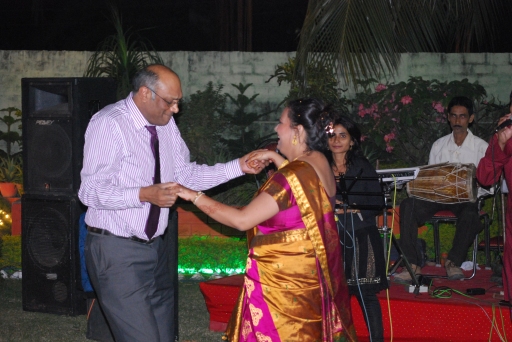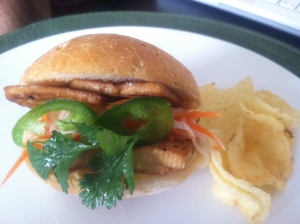“It is easy to overlook this thought that life just is. As humans we are inclined to feel that life must have a point. We have plans and aspirations and desires. We want to take constant advantage of the intoxicating existence we’ve been endowed with. But what’s life to a lichen? Yet its impulse to exist, to be , is every bit as strong as ours-arguably even stronger. If I were told that I had to spend decades being a furry growth on a rock in the woods, I believe I would lose the will to go on. Lichens don’t. Like virtually all living things, they will suffer any hardship, endure any insult, for a moment’s additions existence. Life, in short just wants to be.” ― Bill Bryson, A Short History of Nearly Everything
“Not only have you been lucky enough to be attached since time immemorial to a favored evolutionary line, but you have also been extremely- make that miraculously- fortunate in your personal ancestry. Consider the fact that for 3.8 billion years, a period of time older than the Earth’s mountains and rivers and oceans, every one of your forebears on both sides has been attractive enough to find a mate, healthy enough to reproduce, and sufficiently blessed by fate and circumstances to live long enough to do so. Not one of your pertinent ancestors was squashed, devoured, drowned, starved, stranded, stuck fast, untimely wounded, or otherwise deflected from its life’s quest of delivering a tiny charge of genetic material to the right partner at the right moment in order to perpetuate the only possible sequence of hereditary combinations that could result — eventually, astoundingly, and all too briefly — in you.” ― Bill Bryson, A Short History of Nearly Everything
“It is a slightly arresting notion that if you were to pick yourself apart with tweezers, one atom at a time, you would produce a mound of fine atomic dust, none of which had ever been alive but all of which had once been you.” ― Bill Bryson, A Short History of Nearly Everything
“When the poet Paul Valery once asked Albert Einstein if he kept a notebook to record his ideas, Einstein looked at him with mild but genuine surprise. “Oh, that’s not necessary,” he replied . “It’s so seldom I have one.” ― Bill Bryson, A Short History of Nearly Everything
“Disassemble the cells of a sponge (by passing them through a sieve, for instance), then dump them into a solution, and they will find their way back together and build themselves into a sponge again. You can do this to them over and over, and they will doggedly reassemble because, like you and me and every other living thing, they have one overwhelming impulse: to continue to be.” ― Bill Bryson, A Short History of Nearly Everything
“Life just wants to be; but it doesn’t want to be much.” ― Bill Bryson, A Short History of Nearly Everything
“Take a moment from time to time to remember that you are alive. I know this sounds a trifle obvious, but it is amazing how little time we take to remark upon this singular and gratifying fact. By the most astounding stroke of luck an infinitesimal portion of all the matter in the universe came together to create you and for the tiniest moment in the great span of eternity you have the incomparable privilege to exist.” ― Bill Bryson, I’m a Stranger Here Myself: Notes on Returning to America After 20 Years Away
“The brick walls are there for a reason. The brick walls are not there to keep us out. The brick walls are there to give us a chance to show how badly we want something. Because the brick walls are there to stop the people who don’t want it badly enough. They’re there to stop the other people.” ― Randy Pausch, The Last Lecture
“When it comes to men who are romantically interested in you, it’s really simple. Just ignore everything they say and only pay attention to what they do.” ― Randy Pausch, The Last Lecture
“The key question to keep asking is, Are you spending your time on the right things? Because time is all you have. ” ― Randy Pausch, The Last Lecture
“You give your children enough money to do something but not enough to do nothing.” – Matt King, The Descendants
“Once you decide on your occupation, you must immerse yourself in your work. You have to fall in love with your work. Never complain about your job. You must dedicate your life to mastering your skill. That’s the secret of success, and is the key to being regarded honorably.” ― Jiro Ono, the best sushi chef in Japan, Jiro Dreams of Sushi
“I’ve seen many chefs who are self-critical, but I’ve never seen a chef who is so hard on himself. He sets the standard for self-discipline. He is always looking ahead. He’s never satisfied with his work. He’s always trying to find ways to make the sushi better, or to improve his skills. Even now, that’s what he thinks about all day, every day.” ― Yamamoto, food critic, on Jiro Ono, the best sushi chef in Japan, Jiro Dreams of Sushi
“A great chef has the following five attributes. First, they take their work very seriously and consistently perform on the highest level. Second, they aspire to improve their skills. Third is cleanliness. If the restaurant doesn’t feel clean, the food isn’t going to taste good. The fourth attribute is impatience. They are better leaders than collaborators. They’re stubborn and insist on having it their way. And finally, a great chef is passionate. Jiro has all these attributes. He’s a perfectionist.” ― Yamamoto, food critic, on Jiro Ono, the best sushi chef in Japan, Jiro Dreams of Sushi
“What would you do if you knew you couldn’t fail?” ― Unknown (to me)
“Don’t pursue success. Pursue discipline.” ― CR Choi
“Don’t cry because it’s over, smile because it happened.” ― Dr. Seuss
“The ache for home lives in all of us. The safe place where we can go as we are and not be questioned.” ― Maya Angelou
“On the way to wonderful, take a look around at OK; it may just be good enough for you.” ― adapted from Bill Withers, below
“One of the things I always tell my kids is that it’s OK to head out for wonderful, but on your way to wonderful, you’re gonna have to pass through all right. When you get to all right, take a good look around and get used to it, because that may be as far as you’re gonna go.” ― Bill Withers
“Kisses are like tears; the only real ones are the ones you can’t hold back.” ― Anonymous, found in Thumbs, Toes & Tears by Chip Walter
“Expectations are pre-meditated resentment.” ― Anonymous,


